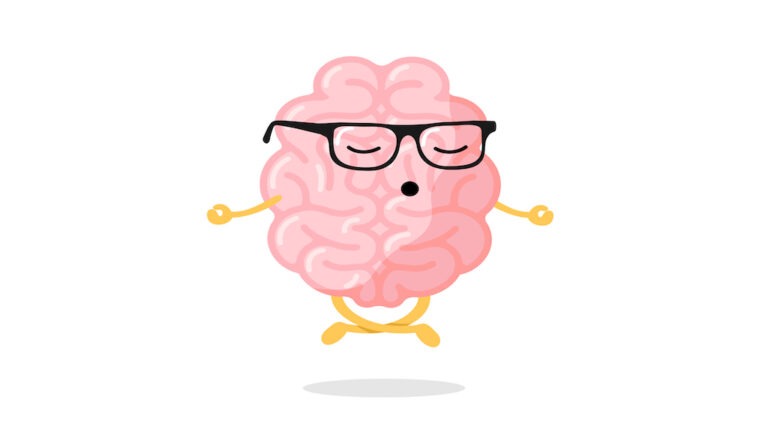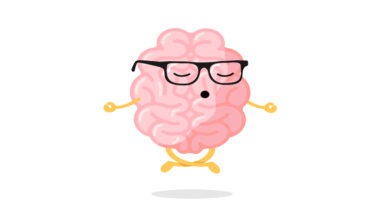The Meaning of Life Experiment; The Age When You’ll Find Purpose

The calendar has turned the page and we find ourselves facing a brand new year and decade. So many of us take this annual ritual as a signal to assess our life’s purpose and meaning. The very question of the meaning of life has captivated human existence from the very beginning, from philosophy to religion, to science, and metaphysics. But now a scientific study has determined the average age at which people say they believe they’ve found some meaning,
In a 2009 psychological test called “The Meaning of Life Questionnaire,” over 8000 participants displayed two very different scores – the first being how hard the participants felt they were searching for a sense of meaning, or purpose, and the second score showing whether the participants believe they’d found it. The results? The harder participants looked for meaning, the lower their happiness and life satisfaction were rated.
There is no one meaning per se; the meaning of life is both a universal and individual quest and one that is ever-changing. As researchers have discovered, the meaning of life is not a single, specific goal we aim to reach, but a continual striving that we fine-tune and evaluate, transforming as we grow and age.
Searching For Meaning in Life: The Secret to Aging Wisely
Our society is hyper-focused on all the ways we can stay young, from spending hours to the gym, eating the latest health food craze, undergoing plastic surgery, or even reprogramming our DNA. But what if the secret to aging well isn’t about turning back the clock, but instead embracing the wisdom that comes with aging with meaning? A group of psychiatrists at the University of California, San Diego are working to pinpoint the age humans are most likely to find one’s purpose or meaning in life and the results may or may not be surprising.
A cohort of over 1000 people, aged 21 to 100, was interviewed and the results show that we begin to feel our life has meaning by the age of sixty. In fact, according to the study, published in the Journal of Clinical Psychiatry, “the search for meaning is often at its lowest, and the ‘presence’ of meaning is at its highest.” When asked what constitutes meaning or purpose, researchers at the UC Berkeley’s Greater Good Science Center suggested that you cultivate the following:
- Positive self-image
- Authentic relationships
- Long-term, meaningful goals
- Contributing to society
- Community
- Engagement in creativity
- Reading books
- Gratitude
- Adaptability
- Altruism
Okay, Boomer: How Millennials Can Learn From Their Elders
When we’re younger, our lives are often looked at as a wide-open book; the world and all its possibilities seem vast and endless. This state of flux, from friendships to jobs, to where we live and how we make our way in the world, is this generation’s norm. These are the years where society expects us to be finding ourselves.
But at a certain point, society expects us to “settle down” in the form of a defined career, a stable relationship, etc. Does this stability translate into the search for meaning being over? Or is this very human desire to understand and live our purpose develop, shift, and transform as we age?
Scientists have discovered while the quest for purpose is natural, not finding it by a certain age can have detrimental impacts on our health and well-being. In other words, searching for the meaning of life is a natural and positive aspect of our lifelong developmental growth and can result in a higher index of connection, meaning or purpose, and health.
Intentionally striving for life’s purpose can be viewed as an advanced human ability, one that is deeply rooted in our patterns of life. Oftentimes, we focus on the negative patterns that might be inhibiting our personal growth, and while recognizing this is important, it’s also critical to take stock of the ways our inherent desire for meaning develops.

What are some of the secrets to finding meaning in one’s life as we age into our 40s, 50s, 60s, and beyond? Sometimes it’s as simple as establishing the rules for your own life or stepping outside of your comfort zone. This is why “60 is the new 40” is redefining aging because so many baby boomers are defying traditional ideas through second (or third) careers, healthy living, and living with the purpose that other generations can learn from.
While it might sound odd, incorporating the act of failing, especially as we age, can also heighten the sense of meaning in your life, as can consciously directing your energy to what brings you joy. These acts do many things, including developing and honing one’s sense of self-awareness and intuition, two key components of finding purpose in one’s life.
How Do You Find Meaning in Life: The Why of What We Do
One of the key life areas that receive the most energy in our search for meaning is in the work we do, or the career choices we make. From an early age we’re asked, “what do you want to be when you grow up?” and the focus on career-centric choices from high school to universities is pervasive.
But what if these questions were also asked – why do you want to be that, or how do you want your work-life to look like? Perhaps if we began asking those questions of younger people as they embark on their pre-career studies, the search for meaning in their life might be more focused, and yes, meaning-full.
Leading experts in the area of work and meaning agree that understanding the “why” of work can help to infuse our nine-to-five existence with a deeper sense of purpose. After all, we spend an inordinate amount of time in our work-life; one that is centered on a shared sense of purpose, personal growth, and positive engagement make going to work all the more meaningful and lead to being part of what authors David and Wendy Ulrich define as an abundant organization.
But what if work doesn’t define your life’s meaning? After all, the average working person can change jobs every three to four years and therefore have a number of careers over their working life. If this is you, focusing on the “how” of work can help to define life’s meaning, and can allow for a sense of autonomy in which work serves to support one’s larger purpose or creative endeavors.
Finding Your Way Toward Meaning
Many are overwhelmed at the idea of finding meaning in their life; they feel it is beyond their budget, or time, or lifestyle. However, as the saying goes, the journey begins with one step. Try this simple mental exercise to help define what matters to you, adapted from acceptance and commitment therapy (ACT).
All you need is a piece of paper, a pen or pencil, and time for yourself. Create a list of the different areas of your life, such as relationships, jobs, education, spirituality, health, family, and recreation. Using a scale from 1 (not important) to 5 (most important), evaluate each item on the list as to the level of importance it holds for you.
After you’ve defined two or three most important things on your list, take some time to write out your relationship to those items and how you would like to find more meaning in them. It’s important to take your time with this exercise – remember, Rome and the meaning of your life weren’t built in a day and the cultivation of patience is one of the most critical parts of discovering, refining, and living with purpose. If writing is not your process, try sitting in stillness while listening to any of the many free guided meditations available online.
Writing not your thing? Try Ashok Gupta’s “Meaning of Life” free meditations, ten and twenty minute guided apps and daily teaching videos that can help support one’s search for a purpose by relaxing the listener’s nervous system. Gupta is the creator of the Gupta Program for Health and Happiness, a neuroplasticity training program for those living with persistent health and well-being issues including fibromyalgia, anxiety, chronic fatigue and more. Gupta has expanded this program, which has assisted those suffering from these conditions achieve a better quality of life and applied it to the search for a more meaningful life itself.
Finding Purpose; The Truest Expression of Being Human
The study exposes a paradox in how we search for meaning and suggests that a more subtle approach could be the answer. Psychiatrists define this as the presence of meaning and the search for meaning. Chronically ill patients were studied over a period of time for how they successfully coped with their ongoing health conditions. The study showed that those who experienced what can be viewed as having a positive presence of meaning had a higher quality of life than those who were in a constant search for meaning.
Rather than making the search about finding meaning, experts have turned to Viktor Frankl as a model for how to live a life of meaning. Frankl, a World War II Holocaust survivor, wrote extensively on how he was able to emerge from the horrific experience that took the life of so many, including his wife and mother. He realized that focusing on finding meaning and purpose was the antidote to suffering and became his life’s mission — to help others discover their purpose, through finding beauty, and engaging in meaningful relationships and endeavors.
Frankl’s model, as well as many others, have provided important life lessons — that by consciously choosing to live with purpose and meaning we not only improve the quality of our lives, but of those around us. The Buddha is quoted as saying, “your purpose in life is to find your purpose and give your whole heart and soul to it.” It seems to be a very worthy resolution as we enter into 2020.
Can Mindfulness and a Psychology Class Make You Happier?

By studying the effects of mindfulness on psychiatric patients, and the pursuit of happiness, can we teach ourselves how to be happier?
The term mindfulness has entered popular culture in recent years, but this ancient Buddhist practice actually began gaining acceptance in western medicine in the 1970s.
The three main tenets of mindfulness are:
- Intention to cultivate awareness
- Attention to what is occurring in the present moment
- An attitude that is non-judgmental
In a recent article for psychiatric times, researchers looked at how mindfulness-based treatments work for psychiatric patients, and how these therapies can enhance and even replace pharmaceutical interventions. They found a wealth of evidence that mindfulness-based therapies have overwhelmingly positive effects on patients.
With mindfulness-based cognitive therapy reducing the rate of relapse rates for patients with major depression similar to that of pharmaceuticals, they also showed reduced anxiety, depression, and increased cognition.
The researchers point out, however, that, “Despite this evidence, pharmacotherapy remains the main treatment option for many patients with mental disorders, although about 75 percent of patients with mental disorders prefer psychotherapy. Researchers recommend implementing mindfulness-based therapies in place of, or in concert with, pharmacotherapy especially as the population grows older and cognitive issues become more common.





































